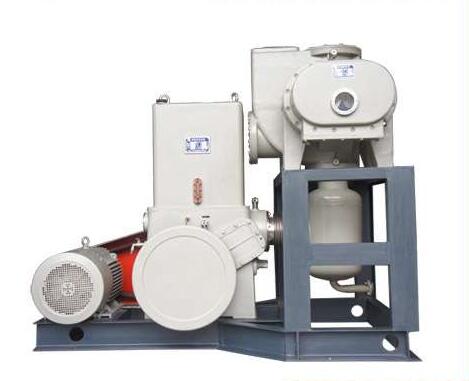Roots piston vacuum system for dehydrated vegetables
The application of Roots piston vacuum system in dehydrated vegetables can bring its vacuum freeze-drying technology into full play. The development of freeze-dried food can enrich the added value of agricultural products and earn foreign exchange through export. China’s dehydrated vegetable production accounts for more than half of the world’s total output and is growing at an annual rate of more than 20%. However, it has very few species and a very narrow range. The development of the whole industry is still at a low level and needs to be further expanded. At the same time, most of the high-grade dehydrated vegetables in the international market are produced by vacuum refrigeration equipment. Therefore, using foreign experience for reference, Roots piston vacuum system was applied to dehydrated vegetables, and good results were achieved.
Dehydrated vegetables, also known as rehydrated vegetables, are dried vegetables made by washing and drying fresh vegetables and removing most of the water from the vegetables. The original color and nutrient composition of vegetables remained basically unchanged. It is easy to store and transport, and can effectively regulate the season of vegetable production. It can be restored by immersing it in clear water and retaining the original color, nutrition and flavor of vegetables. Compared with other fresh vegetables, dehydrated vegetables have the characteristics of small size, light weight, recovery after entering water, convenient transportation and consumption. When eating, it is not only delicious and fresh, but also maintain its original nutritional value.
Vacuum freeze-drying dehydrated vegetables are obtained by first freezing water in vegetables into ice and then sublimating it into gas at high temperature. Vegetables are dehydrated and dried, and dehydrated vegetables cannot pass through water through microorganisms and enzymes. The purpose of long-term preservation. When you need to eat, just add water, the vegetable will restore its original appearance, color, fragrance, taste, shape. Vegetables are as nutritious as fresh vegetables because they are dried at low temperatures and under hypoxic conditions, and their original nutrients are hardly damaged. In addition, the high dehydration rate of more than 95% greatly prolongs the shelf life of this food. In the case of good packaging, freeze-dried vegetables can be stored at room temperature for more than five years, without preservatives, light weight, easy to transport.

Following are the concepts of freeze-dried vegetables, dehydrated vegetables, quick-frozen vegetables and frozen vegetables.
Freeze-dried vegetables: After rapidly freezing fresh vegetables, meat and aquatic products, the moisture of the material is sublimated from solid ice to gas in vacuum through a freeze-dryer to dehydrate the material. Freeze-dried vegetables do not require refrigeration. It can be stored at room temperature for a long time, adding it like fresh food. This is beneficial to supermarket management and family protection. It is the highest-grade green food in developed countries.
Dehydrated vegetable: Dry vegetable made by artificially heating most of the water in the vegetable. When eating, it not only tastes delicious and fresh, but also maintains the original nutritional value. In addition, it is much smaller and lighter than fresh vegetables. It will recover when it enters the water and is convenient for transportation and consumption.
Quick-frozen vegetables: different from frozen vegetables. Quick-frozen vegetable juice contains a lot of water (usually 65% to 97%) and soluble substances such as inorganic salts, organic acids, sugar and bone glue. When vegetables are slowly frozen, cell fluid dehydrates and water forms large ice crystals, which seriously damages cell walls. After thawing, the juice loses, the meat is soft and brittle, and the quantity and quality are greatly reduced. In the case of quick-frozen vegetables, due to the short dehydration time of plant cells, water can quickly pass through the maximum freezing crystallization zone at – 5 low temperature. Fine ice crystals are formed in both cells and intercellular spaces without destroying cell walls. After thawing, the vegetable has good reducibility and basically maintains its original color, aroma, taste, shape and nutrition.
Frozen vegetables: A low-temperature storage method in which water in fruits and vegetables becomes a solid ice crystal structure called freezing. The general storage temperature of frozen fruits and vegetables should be below minus 18 degrees Celsius, which can keep fruits and vegetables fresh for months or years.
Roots piston vacuum system is especially effective in dehydrated vegetables. I believe that the future use of vacuum equipment to produce high-grade dehydrated vegetables is a good choice for enterprise transformation and upgrading.
(The article comes from the Internet. If reprinting is not allowed, please contact our company to delete it.)
